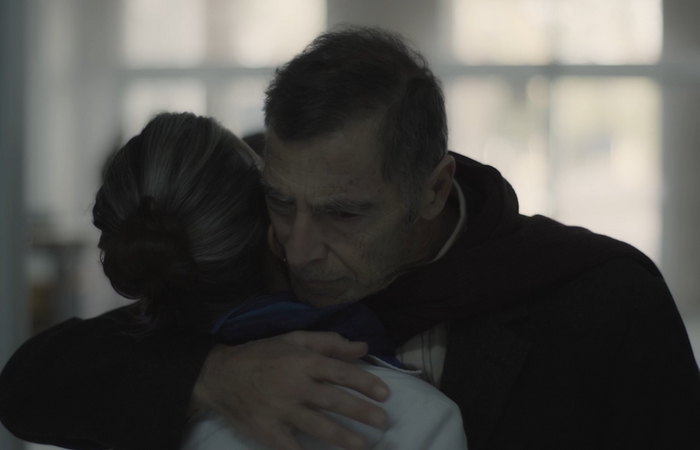Original title: Idem
Origin: Argentina
Address: Martin Viaggio
Script: Martin Viaggio
Performers: Gustavo Garzón, Noemí Frenkel, Marcos Woinsky, Paco Vecchio, María Schnell, Sofía Silva, Alejandra Trigueros, Diego Quiroga, Federico Ortega, Facundo Baldor, Aukan Alfano, Josefina Guevara Villar
Photography: Cristian Ubait
Art direction: Carla Gallas, Renata Casnati, Agustina Francese
Music: Mariano Barrella
Duration: 97 minutes
Year: 2022
3 points
MANUAL TEARS
By Cristian Ariel Mangini
 Facing traffic through the Valley of Death must be one of the most intense experiences when it comes to its representation in art. There are multitudes of works in painting, sculpture, photography, music, theatre, literature, film and even video games where the subject matter is cleverly expounded, often opening up profound and inspiring experiences. Having such a diverse and varied stretch of journey, with a subject that gained special relevance post-pandemic, the question would be, does the latest film by Martin Viaggio add anything to this long list? The answer is no. Nothing. On the contrary, it remains. Between the intellectual parade clipped as an Instagram phrase (¡Pessoa, Orozco!), the self-help manual and a certain bizarre spirituality that has nothing to envy to another national crap like the water gods, the result is a bad Paulo Coelho made into a movie. And beware, there must be some merit in making a bad writer seem somewhat superior.
Facing traffic through the Valley of Death must be one of the most intense experiences when it comes to its representation in art. There are multitudes of works in painting, sculpture, photography, music, theatre, literature, film and even video games where the subject matter is cleverly expounded, often opening up profound and inspiring experiences. Having such a diverse and varied stretch of journey, with a subject that gained special relevance post-pandemic, the question would be, does the latest film by Martin Viaggio add anything to this long list? The answer is no. Nothing. On the contrary, it remains. Between the intellectual parade clipped as an Instagram phrase (¡Pessoa, Orozco!), the self-help manual and a certain bizarre spirituality that has nothing to envy to another national crap like the water gods, the result is a bad Paulo Coelho made into a movie. And beware, there must be some merit in making a bad writer seem somewhat superior.
But let’s get to the movie itself. An engineer (Gustavo Garzón) who leads a gray life receives the news that he is sick with cancer. These first moments of the film are the best, because there is a face of authenticity in the moderate interpretation. Despite the visual obviousness of the photography work, there is promise in the drama of the proposal. Everything begins to get out of hand with the appearance of an enigmatic blind character who insists on telling him about a kind of guru who could cure him. Things get progressively worse with the set phrases that appear in the dialogues and when we get to the guru in question and his proposal to live different experiences with a versatile assistant. The wife played by Noemi Frenkel is oblivious to all this and the story explores, or at least glimpses of exploring, how silence around an illness can degrade a couple. The matter does not go into depth or become too complex and, instead, it considers how the disease allows our protagonist to see things “in another way”. Even the color of his skin changes due to the miracle of the direction of photography. The film follows its course of predictability until it reaches a point where it overwhelms with a soundtrack that, incomprehensibly, overlaps various dialogues, and emits phrases like aphorisms that don’t even go extinct after the end -with the blind man in question quoting Cicero-.
Insufferable beyond his noble intentions and certain technical prolixity, When I’m gone it is of a flatness with intellectual and philosophical pretensions that even displaces even in the credits scene.
If you enjoy the contents of funcinemawe would like your collaboration with a cafecito to sustain this space for independent journalism:

